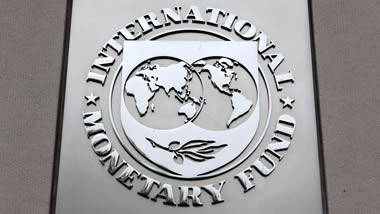Enhancing the European Union’s internal market could be very important for increasing weak economic growth and productivity in the 27-member trading bloc, according to a senior IMF official who spoke to AFP on Friday.
In an interview in Washington, International Monetary Fund European director Alfred Kammer said that they calculated the potential impact of reforming the single market and integration, and the numbers were surprisingly high.
The IMF predicts that European growth will slightly increase to 1.6 percent this year and to 2.0 percent next year, as stated in a regional economic outlook released on Friday.
Kammer emphasized that despite some improvement, per capita income levels in Europe are still around one third lower than in the United States, requiring more efforts to enhance productivity and growth.
The IMF estimates that reducing internal barriers within the EU’s single market by 10 percent would result in a seven percent growth within the EU.
Kammer stated that achieving this would need strong leadership and effective communication of the benefits of the single market and the European Union to the public.
He added that the blame attributed to Brussels for various issues needs to change in order to alter the current narrative.
Apart from deepening regional integration, the IMF report suggested other ways to improve productivity levels, such as increasing digitalization and implementing structural reforms.
Kammer highlighted the potential for Europe to narrow the productivity gap through significant efforts.
He stressed that the current productivity growth rates in Europe are not sufficient for convergence.
– Inflation on track –
The IMF report stated that European countries were progressing towards a “soft landing,” successfully reducing inflation without causing a surge in unemployment or hindering economic growth.
Despite elevated inflation in some European countries, it is expected to decrease from recent highs to 2.4 percent this year and 2.1 percent in 2025, according to the IMF.
Kammer noted that there is recovery despite substantial disinflation, which is not the typical outcome after monetary policy tightening.
He continued by stating that avoiding a recession was a significant achievement.
However, he acknowledged that there is still much work to be done and mentioned several factors that could lead to a resurgence in inflation.
Kammer pointed out that higher oil prices could raise inflation in Europe.
He mentioned the recent minimal impact of oil market developments on the overall situation, stating that it was not significantly influential.
He emphasized the importance of being data-dependent and mentioned the potential need to adjust policy loosening from the current baseline.
– Rising spending pressures –
The IMF report advises that high-debt advanced economies in Europe should initiate fiscal consolidation, including some tax increases, to replenish depleted fiscal reserves following government spending during the pandemic.
Kammer said that this is a part of the financial consolidation to build reserves in preparation for the next crisis.
He added that it is also clear that the expenses are expected to increase in the medium term.
Kammer stated that the IMF predicts that the advanced economies in Europe will experience a 5.5 percent increase in spending pressures as a percentage of GDP by 2050, on average.
Kammer explained that this includes expenses related to climate, defense, pension payments, and interest payments.
He added that in order to address these issues, it is necessary to make space in the budget.
AFP



